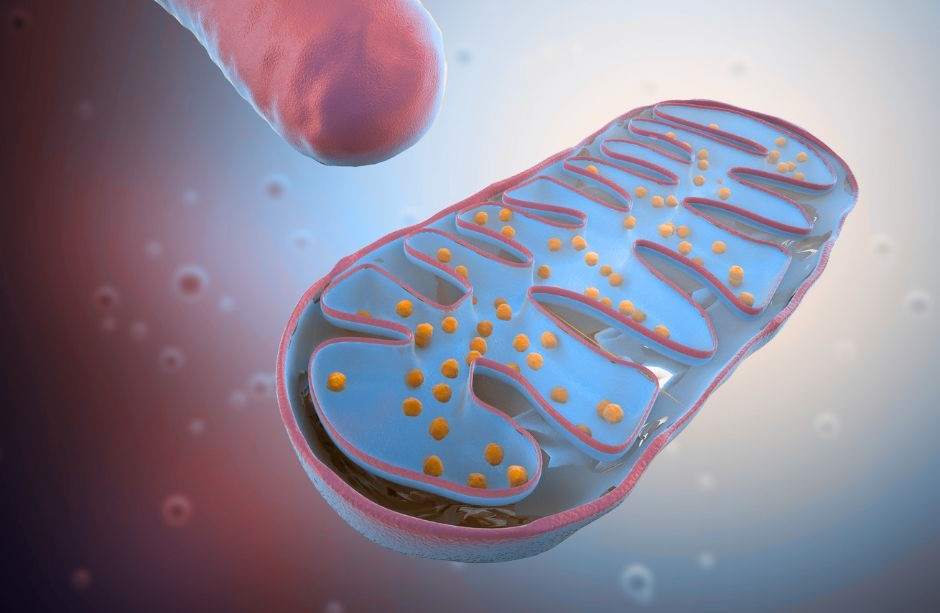Introduction: The Hidden Powerhouse of Your Cells
Your mitochondria are the “power plants” of your cells. When they fail:
- Your energy crashes.
- You age faster.
- You gain weight inexplicably.
Shocking fact: 95% of people neglect mitochondrial health until it’s too late.
In this article, you’ll learn:
- The 10 most serious risks of poor mitochondrial function.
- 5 clinically proven nutrients to repair them.
- How cutting-edge solutions are transforming lives.

Problem #1: Unexplained Chronic Fatigue
- Damaged mitochondria produce 50% less ATP (cellular energy).
- Symptoms: Morning exhaustion, brain fog, caffeine dependence.
- Harvard study: Linked mitochondrial dysfunction to chronic fatigue syndrome (Cell Metabolism, 2021).
Problem #2: Accelerated Aging
- Oxidative stress shortens telomeres (your biological clock).
- Results: Wrinkles, muscle loss, low vitality.
- Key solution: Antioxidants like glutathione and CoQ10.
Problem #3: Slowed Metabolism & Weight Gain
- Weak mitochondria burn less fat.
- Research: Obese individuals have 30% fewer mitochondria in fat cells (Nature).
Problem #4: Insulin Resistance
- Faulty mitochondria can’t process glucose efficiently, leading to prediabetes.
- Critical nutrient: Alpha-lipoic acid (ALA), improves insulin sensitivity by 27% (Diabetes Care).
Problem #5: Silent Inflammation
- Damaged mitochondria release free radicals, causing chronic inflammation.
- Linked to arthritis, Alzheimer’s, and heart disease.
Problem #6: Poor Muscle Recovery
- Without enough ATP, muscles can’t repair post-workout.
- Symptoms: Prolonged soreness, poor athletic performance.
Problem #7: Weak Immune System
- 80% of immune energy comes from mitochondria (Immunity Journal).
- Consequences: Frequent infections, allergies, autoimmune issues.
Problem #8: Free Radical Toxicity
- Dysfunctional mitochondria fail to detoxify, accelerating cellular damage.
- Protectors: Resveratrol, NAC (N-Acetylcysteine).
Problem #9: Mood Disorders
- Low ATP = less serotonin and dopamine.
- Linked to depression and anxiety (Journal of Neuroscience).
Problem #10: Higher Risk of Neurodegenerative Diseases
- Neurons with weak mitochondria die faster, increasing Parkinson’s and Alzheimer’s risk.
The Solution: 5 Science-Backed Mitochondrial Nutrients
1. Coenzyme Q10 (CoQ10)
- Boosts ATP production by 40% (Journal of Clinical Biochemistry).
- Best sources: Red meat, fatty fish.
2. Alpha-Lipoic Acid (ALA)
- Recycles antioxidants like vitamins C and E.
- Optimal dose: 600 mg/day.
3. Magnesium (Especially L-Threonate)
- Enhances brain mitochondria by 20% (Neuron).
4. PQQ (Pyrroloquinoline Quinone)
- Stimulates new mitochondrial growth (PLOS ONE).
5. D-Ribose
- Speeds ATP recovery post-exercise by 50% (Journal of Alternative Medicine).
*”After 3 months on these nutrients, my energy went from 2/10 to 8/10. My doctor was stunned.”* — Mark T., 53
How to Get a Complete Mitochondrial Formula
Most supplements lack clinical doses of these compounds. Look for formulas that:
✅ Include all 5 key nutrients.
✅ Use bioavailable forms (e.g., Ubiquinol over standard CoQ10).
✅ Are backed by published studies.
But here’s the bigger challenge:
90% of people quit supplements because of:
- Forgetfulness.
- Confusion over dosing.
- Slow results.
The breakthrough solution: Systems that optimize compliance through:
- Smart reminders.
- Personalized adjustments.
- Precision tracking.
Discover How Health Leaders Streamline This Process
Conclusion: Your Cellular Energy Determines Your Quality of Life
Neglecting mitochondria is like sabotaging your body’s power grid. The results?
- Premature aging.
- Chronic disease.
- Relentless fatigue.
The good news: Modern science has answers. All you need is consistent action.
Ready to take control of your cellular energy?


